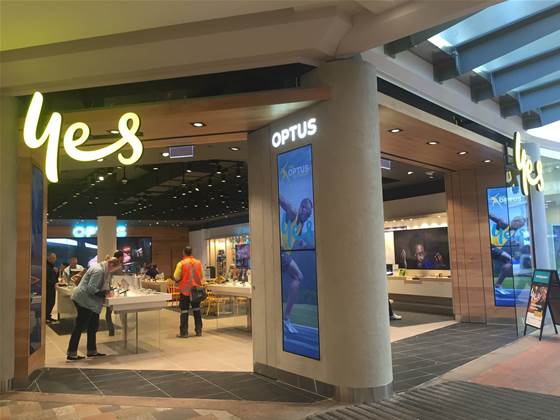Optus has accused NBN Co of indefinitely delaying remediation work for underperforming copper-based services, until the lines can be overbuilt via a mass upgrade program.

The telco cited open cases of two customers whose lines have underperformed for “more than 18 months”, for which NBN Co pays rebates of up to $20 a month under a scheme agreed in 2020.
Other customers with underperforming services are allegedly being told their only “remediation” path is ‘fibre connect’, the program that is overbuilding parts of the copper network with fibre.
However, as Optus notes [pdf] in a new regulatory submission, this requires the customers with underperforming lines to commit to pay NBN Co more to qualify for a better service.
Optus alleges NBN Co has backed down when challenged, agreeing to move customers from underperforming fibre-to-the-node (FTTN) up to fibre-to-the-premises (FTTP) for free.
Optus said the underperforming copper-based lines fall short of the peak information rate (PIR) objective [pdf], which is a downlink speed of 25Mbps (or 12Mbps during co-existence with legacy ADSL services).
The telco redacts the actual speeds that its customers on long-term unremediated lines are experiencing, but said the services are broadly incapable of “basic functions”.
“The limitations in their line performance would impact their ability to use their internet service for basic functions such as video calling, transferring files, or multiple people using the internet at once,” Optus said.
Optus cited two examples of customers who had been waiting longer than 18 months for remediation work on their line, and where the work is constantly being pushed out.
“Despite Optus following up [on] these cases, it is completely unclear when NBN Co will remediate these lines,” Optus said.
“Optus has a small business customer… After a history of performance issues, NBN Co finally acknowledged the line needed remediation more than 18 months ago.
“The customer’s remediation date has been pushed out multiple times and the most recent advice does not even include an estimated remediation date.
“Optus has another customer whose [underperformance] was raised more than 18 months ago.
“Again this customer has had their remediation date pushed out multiple times and again the most recent advice does not even include an estimated remediation date.”
Optus said this is a “known” service issue and that NBN Co is paying out long-term rebates “in many cases”.
The telco further alleged that the delays to individually address cases of underperforming line speed are essentially to buy time, so that the services can be overbuilt as part of NBN Co’s multi-billion dollar ‘fibre connect’ upgrade program.
However, as a “remediation” path, this comes with additional costs for the customer, as they must commit to a minimum 100/20Mbps service for a minimum period, to qualify.
“Optus has concerns that NBN Co too readily seeks to address remediation issues via the fibre connect program (incurring additional costs to the customer), when in fact a customer’s line may not meet the PIR objectives in the [wholesale broadband agreement], nor the legislated objectives in section 360S of the Telecommunications Act, and should be remediated without the customer having to incur additional costs just so their line can support basic online functions,” Optus said.
Optus said it is challenging this on a case-by-case basis and succeeding in getting the lines overbuilt - without the customer having to make a higher service commitment, given their poor experiences to date.
“It is only after intervention by Optus was the customer’s line remediated via the COAT [change of access technology] program, which does not require customers to upgrade their speed tier or stay connected on a higher speed tier for a minimum period of time,” Optus said.
Optus said the cases highlight “clear [and] current issues with NBN service and quality levels”, and should act as additional evidence of the need to hold NBN Co to higher service standards than it is willing to commit to.
Service standards are being incorporated into a revised special access undertaking (SAU), a key document that sets price and non-price terms for the NBN through to 2040.
The standards NBN Co is proposing to build in are dated, while it wants to charge more to deliver the same quality-of-service.
The service standards are a major sticking point in the SAU revision, and there are few signs the impasse can be broken.
NBN Co maintains it can’t commit to higher standards while having so much of its network based on copper, and that a step change may only occur when more of the network is fibre-based, and if and when an unknown quantity of customers agree to upgrade.

.png&h=140&w=231&c=1&s=0)
.jpg&h=140&w=231&c=1&s=0)
.jpg&h=140&w=231&c=1&s=0)
.jpg&h=140&w=231&c=1&s=0)

















